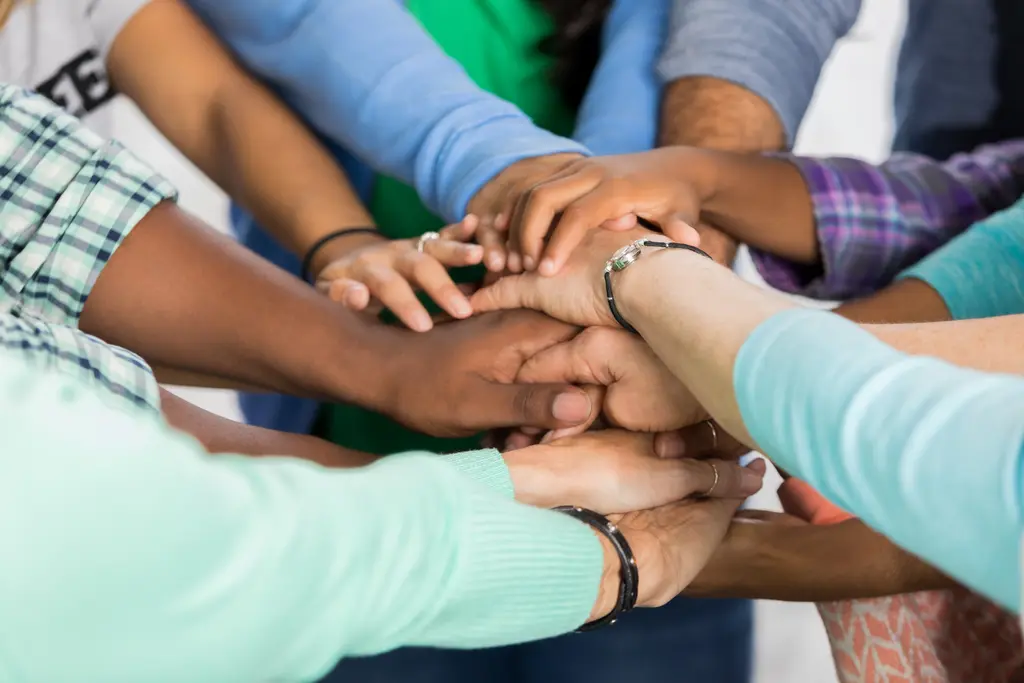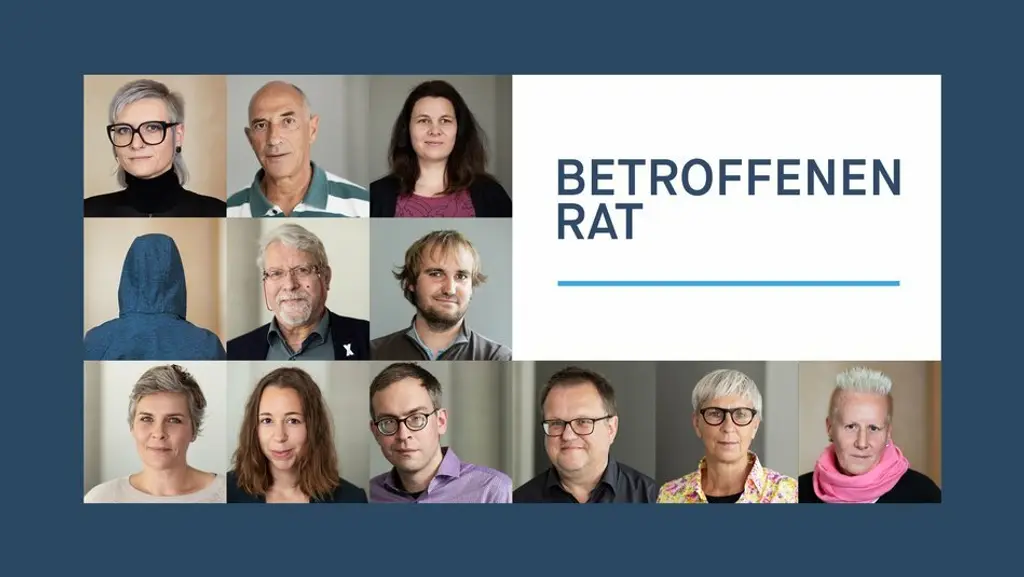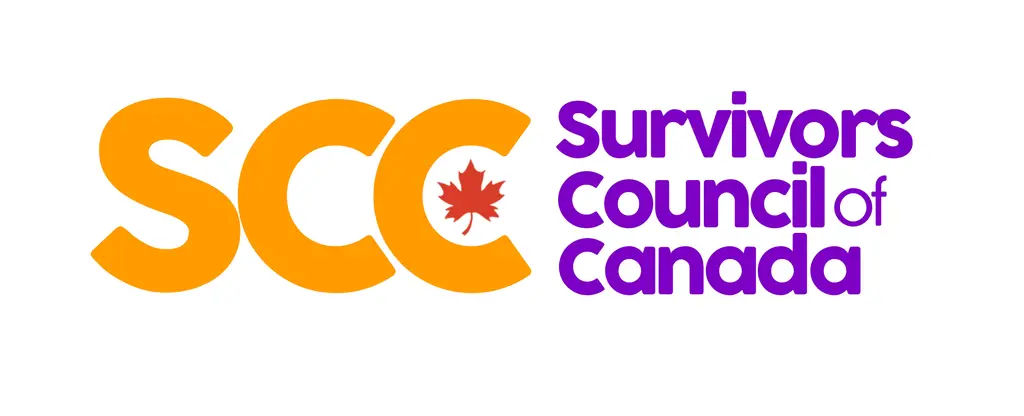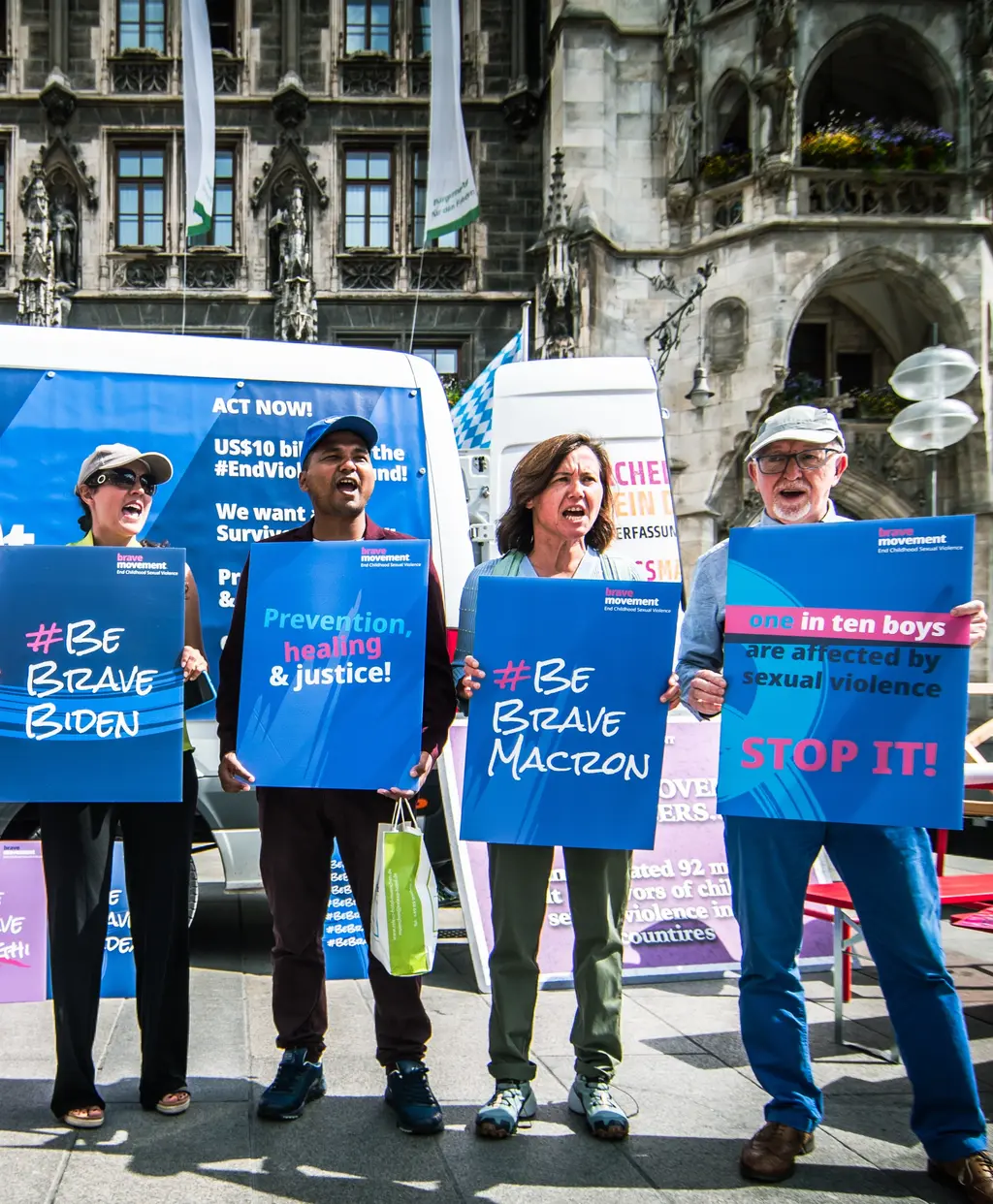Sensitive content
This site contains sensitive content that includes references to sexual violence.
Nicolas Haaf

This blog was authored by Rosalia Rivera, co-founder of the Brave Movement and Founder of CONSENTparenting, and Nicolas Haaf, member of the German Survivor Council.
Survivors have firsthand experience and insights into the complexities, challenges, and needs of those who have suffered from childhood sexual violence. Their direct experiences provide invaluable perspectives and expertise that policymakers may lack.
Through the creation of National Survivor Councils (NSCs), governments are better equipped to effectively address violence against children, especially childhood sexual violence, while ensuring that survivors play a central role in all such efforts.
NSCs ensure survivors aren't just heard—they’re leading the way. These councils don’t just give feedback; they help shape the actual policies that impact how we prevent and respond to childhood sexual violence.
"When survivors are in leadership, we move past stigma and silence. We create real, lasting change. NSCs center lived experience to ensure the solutions we build are not only informed, but truly transformative."
Having a council of survivors of child sexual violence substantively included in policy-making processes guarantees that the voices, perspectives, and expertise of those directly affected are heard, valued, and integrated into resulting policies and decisions. By actively involving survivors, governments can develop more informed, empathetic, and effective responses to the fight against child sexual violence.
It is essential, however, that survivor councils follow a specific structure to ensure their effectiveness:
NSCs serve as a critical bridge between lived survivor experience and the development of effective, trauma-informed policies.
They ensure reforms are grounded in what truly matters: prevention through education and systemic change, healing through accessible, survivor-centered support, and justice through the removal of barriers like statutes of limitations and gaps in law enforcement training.
These councils do more than advise—they lead. By elevating survivor voices and translating them into actionable policy, NSCs drive meaningful legislative change and hold systems accountable. The result? A more just, informed, and responsive society.
"National Survivor Councils can influence the language used in political discourse so it better acknowledges survivors’ experiences and suffering, but also their achievements."
 Nicolas Haaf
Member of the Germany Survivor Council
Nicolas Haaf
Member of the Germany Survivor Council
The Independent Commissioner for Child Sexual Abuse Issues was established by the German Government in 2010 as a political hub for survivors, practitioners, researchers, and lawmakers working on child protection.
The first Survivor Council at the Commissioner’s Office was formed in March 2015 to ensure that survivors' experiences and expertise are heard at the highest political level and engaged in policy-making processes related to childhood sexual violence in the country.
In 2025, the Bundestag and the Bundesrat, the two German parliamentary chambers, both passed a law making the Independent Commissioner, the Independent Inquiry and the German Survivor Council statutory, making sexual violence against children and adolescents something that cannot be ignored in the political sphere anymore.
In June 2020, a second Survivor Council was appointed for five years, and they have been supporting the Independent Commissioner and the office team on an honorary basis ever since.

The Survivor Council has already had a notable impact on some areas of policymaking. For instance, under the current three-party coalition between the Christian Democratic Union (CDU), the Christian Social Union (CSU) and the Social Democratic Party (SPD), the council had input into the continuation of the Child Sexual Abuse Fund (Fonds Sexueller Missbrauch) – a low-threshold support system for survivors of intrafamilial child sexual abuse – along with the Supplementary Aid System (Ergänzende Hilfesystem) – a support system for survivors of institutional child sexual abuse.
"In other fields, governments listen to experts, so why exclude real experts in preventing childhood sexual violence?"
 Nicolas Haaf
Member of the Germany Survivor Council
Nicolas Haaf
Member of the Germany Survivor Council

The Survivors Council of Canada was established in 2024 and is run voluntarily by survivors. The Council currently has ten members who represent diverse survivor perspectives.
The Council aims to ensure childhood sexual violence programs and funding address survivors' needs by fostering collaboration between survivors, community organizations, and the government. It supports the development of survivor-led online and community-based support systems, strength-based abuse prevention curricula at all education levels, and transformative justice processes within Canadian law.
The Survivors Council of Canada is becoming a force for legislative and cultural transformation. Among its key achievements is the successful advocacy for Erin’s Law in Ontario—the first legislation in Canada to mandate body safety education in schools and establish clear, trauma-informed disclosure protocols. The council continues to influence its implementation to ensure it remains grounded in survivor experience and effective in practice.
Building on this success, the council is now pushing for a federal mandate of Erin’s Law, which would extend protections to public and Indigenous schools nationwide.
Efforts to establish NSCs are gaining momentum worldwide. The Brave Movement is actively championing the creation of these councils worldwide, making the case that survivor-led structures should be the norm, not the exception, in shaping policy responses to child sexual abuse.
The movement to establish NSCs accelerated after the first-ever Global Ministerial Conference on Ending Violence Against Children in November 2024. Survivor councils were included in the final conference Call to Action, and several country governments in attendance pledged either to establish an NSC or explore stronger mechanisms for integrating survivors' voices into their policy-making.

The G7, which will take place in Canada in June 2025, is uniquely positioned to accelerate the global adoption of National Survivor Councils, setting international standards for survivor-centered approaches to ending childhood sexual violence. As hosts of the 2025 G7 Summit, Canada has a historic opportunity to champion NSCs on the world stage, building on momentum from previous summits where child protection initiatives gained traction.

By making survivor leadership a priority agenda item, the G7 can establish concrete commitments, timelines, and accountability measures for all member nations to establish or strengthen their NSCs.
These high-level commitments would not only provide political leverage for survivor advocates across each country but would establish a powerful precedent for the broader international community.
The G7's economic influence and diplomatic reach make it an ideal platform to transform promising pilot projects into permanent, well-resourced institutions that genuinely center survivor expertise in policy development across diverse national contexts.
Too often, bold commitments get lost in political noise or reduced to symbolic gestures.
That’s why continuous pressure matters. Without real accountability, governments can easily sidestep action. Survivor-led recommendations need more than a seat at the table—they must be implemented, funded, and protected in policy.
Global conferences are full of promises, but when it comes to actually building National Survivor Councils, follow-through has been inconsistent at best. Without oversight, we risk more of the same: performative politics and policies that don’t work.
"This is about more than just checking a box. It’s about building systems that reflect real experiences, meet real needs, and actually protect children and adolescents."
